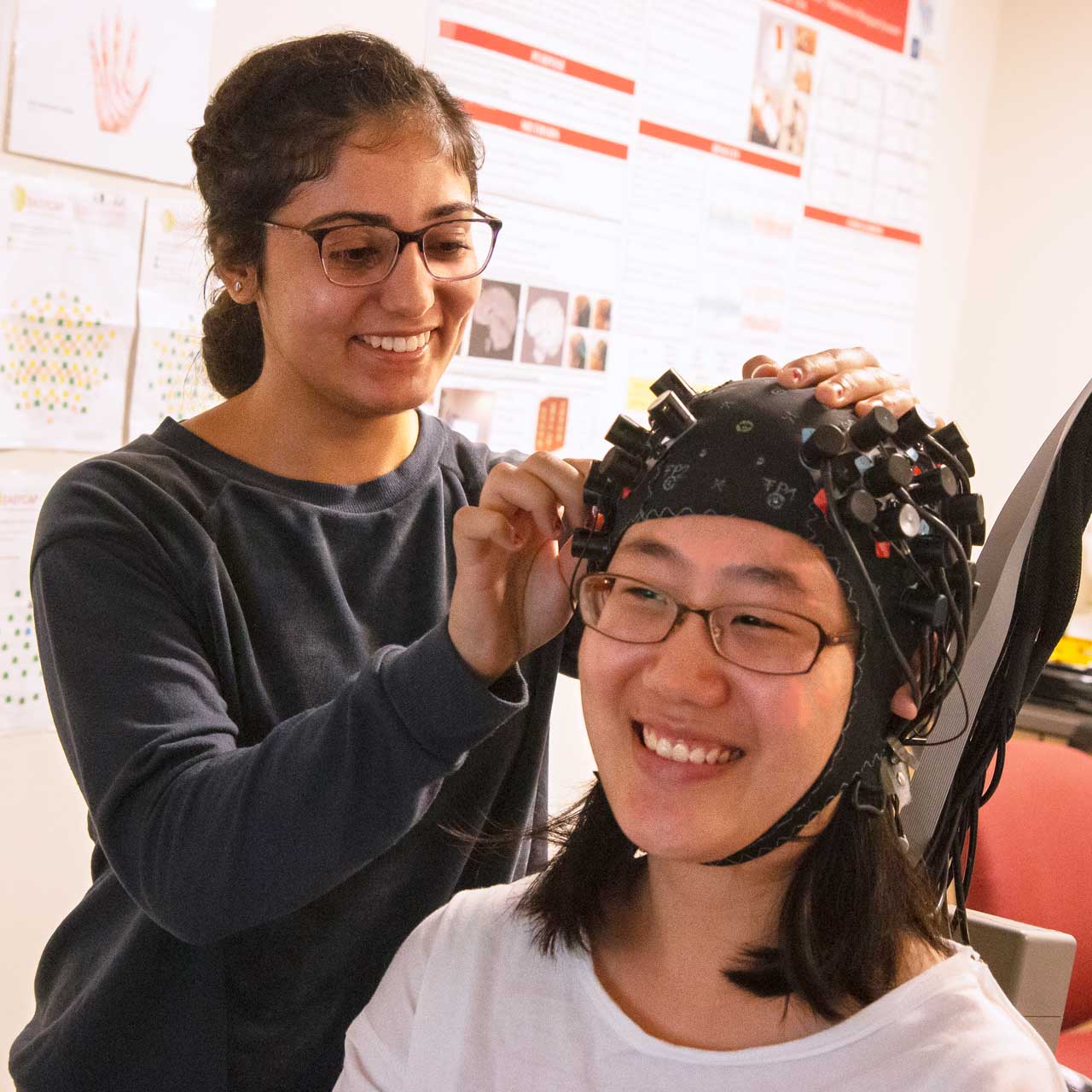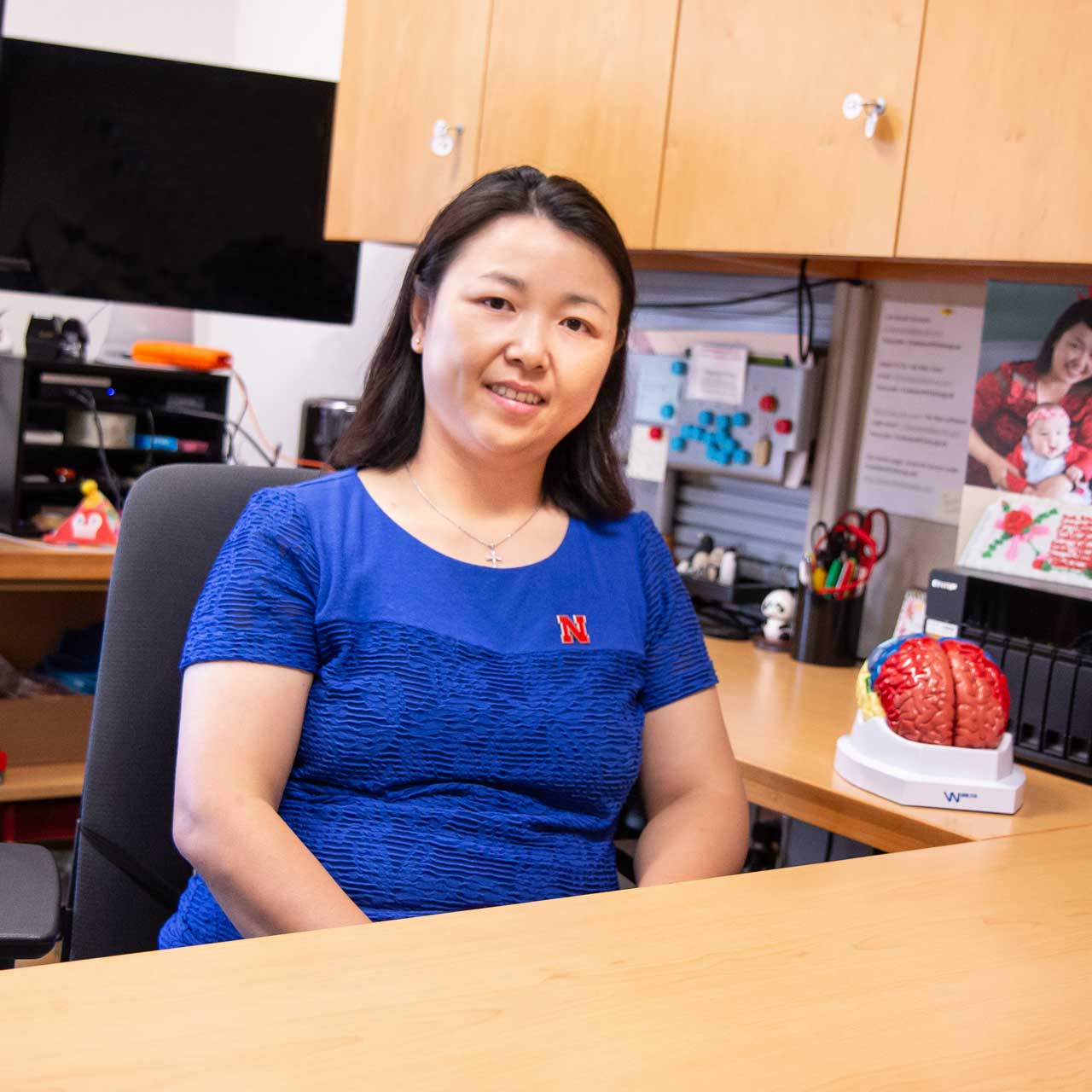Our Research
We study the brain to better understanding language, literacy and learning processes. We are particularly interested in examining brain images to uncover links between children’s brain development and early learning.
We use non-invasive or minimally invasive techniques to study the structure and function of the brain. Brain images captured on a computer or shown on the screen help us detect specific areas of the brain that are “active” during a given task or process, such as reading.
Our research addresses learning challenges related to:
- Hearing loss
- Reading difficulties
- Aging and cognition
- Traumatic brain injury
- Other language, learning or communication disorders (Autism, Aphasia, etc.)
This research can reveal important information about:
- Neural plasticity
- Brain development
- Brain-based factors that affect learning

Our Goal
Our research goal is to advance our understanding of neural plasticity and brain development to support early intervention services and inform educational policies that will help optimize learning for all children.
Who is involved?
Our research participants include adults, as well as children and their families, who are interested in knowing how their brains work and contribute to their learning.
NL3 is now seeking volunteers to be part of this innovative research.
Support
The NL3 lab and its research would not be possible without the individuals and families who have chosen to partner with us on this important research. We deeply appreciate their participation, along with our funders:
- Barkley Trust
- College of Education and Human Sciences, University of Nebraska-Lincoln
- Office of Research and Economic Development, University of Nebraska-Lincoln
- Great Plains IDeA-CTR Pilot Projects Program
- Nebraska Tobacco Settlement Biomedical Research Development
- National Institutes of Health
NL3 lab undergraduate research assistantships are supported by UCARE, which is funded in part by gifts from the Pepsi Quasi Endowment and Union Bank & Trust.
